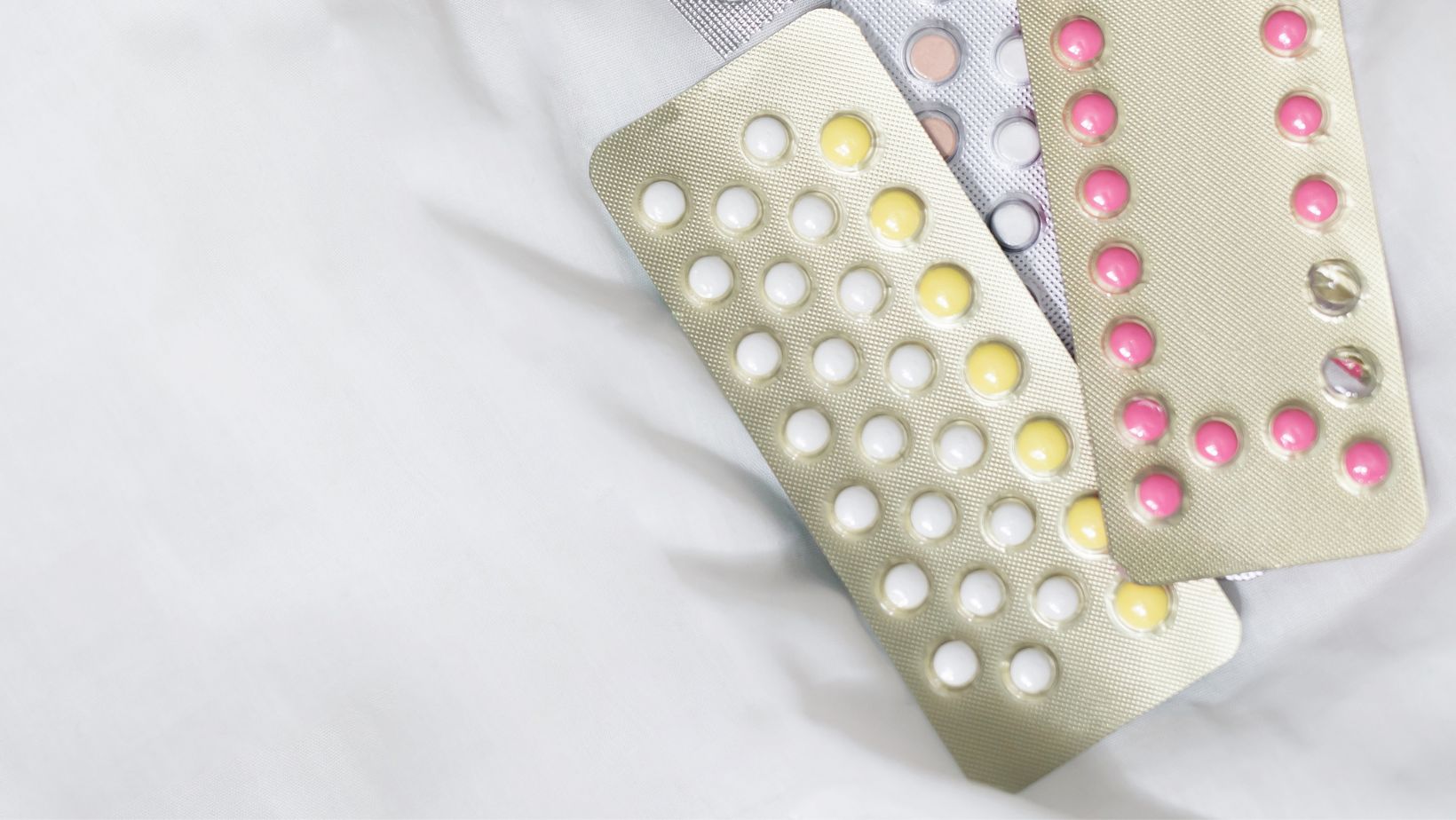
26 Aug 5 Nutrients Depleted By Your Birth Control Pill
The side effects of taking the oral contraceptive pill have been widely discussed in recent years, but did you know that certain nutrients are also depleted by your birth control pill? The pill can compromise your levels of various nutrients vital for optimal health. Here, we take a look at what these nutrients are, why they are so important for your health, and how you can optimise your levels. Read this guide if you’re taking, or considering taking, hormonal contraception.
A number of nutrients can become depleted by the oral contraceptive pill. Here we’ll discuss which ones and how you can adapt your diet to compensate. However, if you believe you’d benefit from personalised advice from a qualified nutritionist, we can help. Schedule a complimentary 25-minute call to talk through how we can help you.
HOW DOES THE PILL AFFECT YOUR NUTRIENT LEVELS?
Multiple studies have shown links between taking the oral contraceptive pill and changing metabolic and nutritional processes. The mechanisms by which the contraceptive pill can deplete these nutrients are not fully understood, but the study suggests it may be due to a combination of factors. This includes interference with nutrient metabolism and absorption, increased urinary excretion of certain water-soluble vitamins, and disruption of the body’s hormonal equilibrium, which can affect digestion and nutrient absorption. For example, the synthetic oestrogens in the pill can increase cholesterol in bile, making it harder for the gallbladder to properly digest and absorb fat-soluble vitamins like A, D, E, and K. The pill can also alter the gut microbiome, which plays a crucial role in nutrient absorption.
WHAT NUTRIENTS DOES BIRTH CONTROL DEPLETE?
B VITAMINS
B vitamins are amongst several nutrients depleted by your birth control pill. Studies have linked to low levels of vitamin B12 to use of contraceptive pills. Vitamin B12 is necessary for processes such as forming red blood cells and protein metabolism. It is also required for normal energy metabolism and function of the immune system.
Food sources of vitamin B12 include meat, fish, eggs and dairy. As most B12 containing foods are from animal sources, vegetarians and vegans are at increased risk of deficiency.
A deficiency of B12 can result in tiredness and lack of energy, so if you’re feeling persistently tired despite getting enough sleep, it’s worth getting your levels tested.
VITAMIN C
Research dating back to the early 80s reported lower levels of vitamin C in those taking oral contraceptive pills. Humans are among the very few animals who can’t make their own vitamin C, so we depend on our diet to provide it. This is more important than ever if you are on the pill. Vitamin C is a powerful antioxidant and is required for collagen production as well as our immune system health.
Vegetables and fruit are amongst the best sources, so fill your diet with broccoli, bell peppers, cauliflower, kale, kiwis and citrus fruits.
MAGNESIUM
Does the birth control pill deplete magnesium? Yes, the use of oral contraceptives has been shown in studies to lower serum magnesium levels. Magnesium is a cofactor in over 300 enzymatic reactions in the body and has many important roles. It is essential for maintaining nerve function, muscle function and blood pressure. It is required for healthy bones and it supports a healthy immune system. Magnesium can also help support mental health and promote better sleep.
Dietary sources include leafy greens, avocados, figs and nuts and seeds.
Low levels are not uncommon so many people can benefit from a high quality magnesium supplement.
Read more in our guide to magnesium here.
ZINC
Studies have shown that taking the contraceptive pill can negatively impact zinc levels. Zinc is important for immune function, wound healing and protein synthesis amongst other important roles.
Zinc can be found in foods including shellfish, meat eggs and dairy products.
Non-animal sources of the nutrient are harder to absorb. Therefore vegans and vegetarians may want to consider a supplement, particularly if taking the contraceptive pill.
VITAMIN E
Vitamin E has a wide range of benefits for our overall health thanks to its role as an antioxidant. It is required for heart health, hair, skin and immune system performance. Studies have shown that taking the pill can increase oxidative stress and reduce levels of vitamin E, so it is important you ensure you are topping up on this essential vitamin.
Vitamin E is fat soluble, so if you’ve been on a low fat diet, make sure to up your intake of healthy fats. Good sources of vitamin E include sunflower seeds, almonds, hazelnuts and avocado.
DOES THE BIRTH CONTROL PILL AFFECT WEIGHT?
Many of our clients question whether taking the oral contraceptive pill contributes to their weight struggles. Some people may experience water retention or increased appetite due to the hormones in birth control pills, which can lead to weight gain. It is important to note that everybody is different, and weight changes while on birth control pills can vary from one person to the next. However, taking the oral contraceptive pill can impact levels of various nutrients which may require making adjustments to your diet and / or supplement routine.
WORK WITH US
We are a team of qualified nutritionists who specialise in weight loss. If you’re ready to overcome your weight challenges, achieve your goal weight and maintain it long term, we can help. You can use this link to book in for a complimentary call. This is an opportunity to talk through your challenges with a member of our team and decide together whether one of our Intelligent Weight Loss programmes is right for you. Or contact us to request a copy of our brochure and we will get back to you soon.
Sign up for our newsletter for the latest health, weight loss and wellbeing advice, direct to your inbox.


